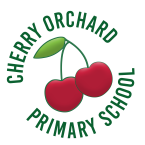Religious Education
R.E. Vision
To explore what people, believe and what difference this makes to how they live.
R.E. Intent
At Cherry Orchard Primary School we believe the principal aim of Religious Education is to explore what people believe and what difference this makes to how they live. Pupils should be given the opportunities to gain the knowledge, understanding, and skills needed to handle questions raised by religion and belief, and to be able to reflect on their own ideas and ways of living - regardless of ethnic origin, gender, class, aptitude, or disability. Through ambitious, high-quality provision and a broad and balanced curriculum, our intent is to:
- Enable children to investigate and reflect on some of the most fundamental questions asked by people.
- Understand how and why religious beliefs shape what different people believe and how they live.
- Develop positive attitudes towards people who hold religious and non-religious beliefs different to their own and to prepare them for multicultural life in modern Britain.
Our R.E. curriculum is designed around the Worcestershire Agreed Syllabus for Religious Education and focuses on three core elements: making sense of beliefs; understanding the impact of beliefs (how and why people put their beliefs into action) and making connections between pupils’ own lives and ways of understanding the world. These elements offer a structure through which pupils encounter diverse religious traditions alongside non-religious worldviews. Children are guided and given opportunities to identify similar themes and threads which connect their learning. For example, Gospel is a theme that is first encountered in Year 2 and then re-visited and built upon in Years 3 and 5. This also enables teaching staff to gain an overview of the entire R.E. curriculum when planning and delivering their lessons. We give pupils the power to easily draw on their prior learning from previous units of study or look ahead to future units in order to make strong, relevant connections. This provides a sense of cohesion in their learning and enables children to know more and remember more. It is our ambition that every pupil achieves more.
Aims of the Syllabus:
EYFS
RE sits very firmly within the areas of personal, social, and emotional development and understanding of the world. This framework enables children to develop a positive sense of themselves, and others, and to learn how to form positive and respectful relationships. They will do this through a balance of guided, planned teaching and pursuing their own learning within an enabling environment. They will begin to understand and value the differences of individuals and groups within their own immediate community. Children will have the opportunity to develop their emerging moral and cultural awareness.
Key Stage 1
Pupils should develop their knowledge and understanding of religions and worldviews, recognising their local, national, and global contexts. They should use basic subject-specific vocabulary. They should raise questions and begin to express their own views in response to the material they learn about and in response to questions about their ideas.
Key Stage 2
Pupils should extend their knowledge and understanding of religions and worldviews, recognising their local, national, and global contexts. They should be introduced to an extended range of sources and subject-specific vocabulary. They should be encouraged to be curious and to ask increasingly challenging questions about religion, belief, values and human life. Pupils should learn to express their own ideas in response to the material they engage with, identifying relevant information, selecting examples and giving reasons to support their ideas and views.
Worcestershire Agreed Syllabus Links:
RE teaching and learning should enable pupils to:
- Make sense of a range of religious and nonreligious beliefs
- Understand the impact and significance of religious and non-religious beliefs
- Make connections between religious and non-religious beliefs, concepts, and practices.
Pupils in KS1 should be taught to:
- Identify the core beliefs and concepts studied and give a simple description of what theymean
- Give examples of how people use stories, texts, and teachings to guide their beliefs and actions
- Think, talk, and ask questions about whether the ideas they have been studying have something to say to them
- Give examples of how stories show what people believe (e.g. the meaning behind a festival)
- Give examples of ways in which believers put their beliefs into action
- Give a good reason for the views they have and the connections they make
- Give clear, simple accounts of what stories and other texts mean to believers.
Pupils in LKS2 should be taught to:
- Identify and describe the core beliefs and concepts studied
- Make simple links between stories, teachings, and concepts studied and how people live, individually and in communities
- Make links between some of the beliefs and practices studied and life in the world today, expressing some ideas of their own clearly
- Make clear links between texts/sources of authority and the key concepts studied.
